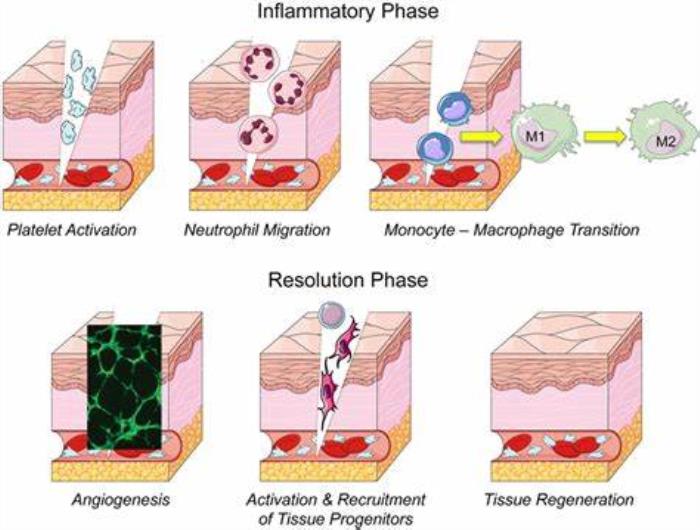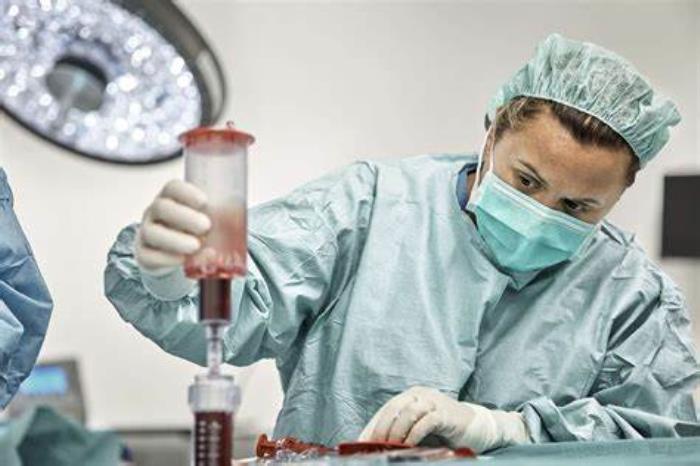Stem cells are unique cells capable of self-renewal and differentiation into various cell types. Their potential in regenerative medicine has garnered significant attention, particularly in the context of organ transplantation. In lung transplantation, where traditional methods face limitations, stem cell therapy offers a promising avenue for enhancing recovery and improving outcomes.
Medical disclaimer: This content is for general awareness and does not replace a doctor’s consultation. For diagnosis or treatment decisions, consult a qualified specialist.
Understanding Lung Transplantation and Its Challenges
Lung transplantation is a complex surgical procedure aimed at replacing a diseased lung with a healthy one from a donor. Despite advancements, challenges such as organ rejection, limited donor availability, and post-operative complications remain significant hurdles. These challenges necessitate innovative strategies, including the exploration of stem cell applications in transplantation.
The Role of Stem Cells in Tissue Repair and Regeneration
Stem cells play a crucial role in tissue repair and regeneration due to their ability to differentiate and proliferate. In the context of lung transplantation, they can potentially aid in repairing lung tissue damaged by diseases such as chronic obstructive pulmonary disease (COPD) or pulmonary fibrosis. This regenerative capacity may enhance the integration of the transplanted organ and improve overall lung function.

Types of Stem Cells Used in Lung Research
Various types of stem cells are being investigated for their therapeutic potential in lung transplantation. Embryonic stem cells (ESCs) and induced pluripotent stem cells (iPSCs) are notable for their ability to differentiate into lung cells. Additionally, mesenchymal stem cells (MSCs) derived from adult tissues are being studied for their immunomodulatory properties, which may help mitigate transplant rejection.
Mechanisms of Action of Stem Cells in Lung Transplantation
The mechanisms through which stem cells exert their effects in lung transplantation include paracrine signaling, where stem cells release factors that promote healing and reduce inflammation. They may also contribute to immune modulation, potentially reducing the risk of rejection and improving graft survival. Understanding these mechanisms is crucial for developing effective stem cell therapies.
Clinical Trials Investigating Stem Cells in Lung Transplantation
Numerous clinical trials are currently underway to evaluate the efficacy and safety of stem cell therapies in lung transplantation. These studies aim to determine optimal dosing, timing, and delivery methods for stem cells, focusing on their potential to enhance lung function and improve patient outcomes. Preliminary results show promise, but further research is needed to establish definitive conclusions.
Ethical Considerations Surrounding Stem Cell Research
Stem cell research, particularly involving embryonic stem cells, raises significant ethical considerations. Issues such as the source of stem cells and the implications of their use in human subjects must be addressed. Regulatory frameworks and ethical guidelines are essential to ensure that research is conducted responsibly while maximizing the potential benefits for patients in need of lung transplantation.
Stem Cells and Post-Transplant Recovery
Post-transplant recovery is critical for the success of lung transplantation. Stem cells may play a role in enhancing recovery by promoting tissue regeneration and reducing complications. Studies suggest that administering stem cells post-operatively could facilitate faster healing, improve lung function, and enhance the quality of life for transplant recipients.
Potential Risks of Stem Cell Therapy in Lung Transplantation
While stem cell therapy holds promise, it is not without risks. Potential complications include tumor formation, immune reactions, and the possibility of infection. Understanding these risks is crucial for clinicians and patients alike, as they weigh the benefits of stem cell therapy against potential adverse outcomes.

Future Directions in Stem Cell Research for Lung Transplantation
The future of stem cell research in lung transplantation is promising, with ongoing investigations into novel sources of stem cells and innovative delivery methods. Advances in gene editing and biotechnology may further enhance the therapeutic potential of stem cells, paving the way for more effective treatments and improved outcomes for lung transplant recipients.
Integrating Stem Cell Therapy with Conventional Treatments
Combining stem cell therapy with conventional treatments may yield synergistic effects in lung transplantation. For instance, integrating stem cells with immunosuppressive therapy could enhance graft survival while minimizing the risk of rejection. This integrative approach may optimize patient outcomes and address the limitations of current treatment modalities.
Patient Education on Stem Cell Therapy in Lung Transplantation
Educating patients about the potential benefits and risks of stem cell therapy is essential for informed decision-making. Healthcare providers should offer comprehensive information regarding ongoing clinical trials, expected outcomes, and any associated risks. Empowering patients with knowledge will help them navigate their treatment options effectively.
Collaboration Between Researchers and Clinicians
Collaboration between researchers and clinicians is vital for translating stem cell research findings into clinical practice. Interdisciplinary teams can facilitate the development of protocols, enhance patient recruitment for trials, and ensure that research outcomes are effectively integrated into patient care. Such collaborations will accelerate the advancement of stem cell therapies in lung transplantation.
Regulatory Frameworks Governing Stem Cell Research
Regulatory frameworks play a crucial role in overseeing stem cell research to ensure safety and efficacy. In India, guidelines established by the Indian Council of Medical Research (ICMR) and other regulatory bodies govern the use of stem cells in clinical settings. Adhering to these regulations is essential for maintaining ethical standards and public trust in stem cell therapies.
Global Perspectives on Stem Cell Applications in Lung Transplantation
Globally, research into stem cell applications in lung transplantation is expanding. Countries such as the United States, Canada, and several European nations are at the forefront of developing innovative stem cell therapies. Sharing insights and findings across borders can enhance the understanding of stem cell applications and foster international collaborations in research and clinical practice.
Economic Implications of Stem Cell Therapy in Lung Transplantation
The economic implications of introducing stem cell therapy in lung transplantation are significant. While initial costs may be high, the potential for improved patient outcomes and reduced long-term healthcare costs could offset these expenses. Evaluating the cost-effectiveness of stem cell therapies is essential for healthcare policymakers and providers to inform resource allocation decisions.
Case Studies Highlighting Successes of Stem Cell Therapy
Case studies of patients who have undergone stem cell therapy in conjunction with lung transplantation provide valuable insights into the therapy's effectiveness. Documented successes include improved lung function, reduced rejection rates, and enhanced quality of life. These case studies serve as a foundation for further research and highlight the potential of stem cell therapies.
Role of Artificial Lungs and Future Innovations in Transplants
Explore the role of artificial lungs and cutting-edge innovations shaping the future of lung transplants. Learn about emerging technologies and their potential impact.
The Importance of Vaccination Before and After a Lung Transplant
Understand the critical role of vaccinations in preventing infections before and after a lung transplant. This blog provides a detailed guide on essential vaccines for transplant patients.
Challenges in Implementing Stem Cell Therapies in Clinical Practice
Implementing stem cell therapies in clinical practice presents several challenges, including logistical issues, regulatory hurdles, and the need for standardized protocols. Additionally, ensuring patient safety and managing expectations are crucial components that healthcare providers must address. Overcoming these challenges will be essential for the successful integration of stem cell therapies into lung transplantation protocols.
Best Lung Transplant in India
The Best Lung Transplant in India offers a vital treatment option for patients with end-stage lung diseases, combining advanced surgical expertise with comprehensive post-transplant care.
Best Lung Transplant Hospitals in India
The Best Lung Transplant Hospitals in India are equipped with cutting-edge technology and experienced transplant teams, ensuring seamless care and improved outcomes for patients.
Lung Transplant Cost in India
The Lung Transplant Cost in India is structured to provide affordability while maintaining high standards of medical care and long-term support for patients.
Best Lung Transplant Surgeons in India
The Best Lung Transplant Surgeons in India are highly skilled in handling complex transplant cases, offering precise surgical interventions and personalized patient care for successful recoveries.
FAQs about Stem Cells in Lung Transplantation
What are stem cells, and why are they important in lung transplantation?
Stem cells are unique cells capable of differentiating into various cell types, making them vital for regenerative medicine. In lung transplantation, they can aid in repairing damaged tissue and improving graft survival.
What types of stem cells are being researched for lung transplantation?
Research focuses on several types of stem cells, including embryonic stem cells, induced pluripotent stem cells (iPSCs), and mesenchymal stem cells (MSCs). Each type has distinct properties that may benefit lung transplantation.
What are the potential risks associated with stem cell therapy?
Potential risks include tumor formation, immune reactions, and infection. Understanding these risks is crucial for patients considering stem cell therapy.
How can patients learn more about stem cell therapy options?
Patients can consult with their healthcare providers for comprehensive information on ongoing clinical trials, expected outcomes, and potential risks associated with stem cell therapy in lung transplantation.
Lung function tests, such as spirometry, are crucial for monitoring the health of transplanted lungs. These tests measure key parameters like forced vital capacity (FVC) and forced expiratory volume in 1 second (FEV1), which help detect early signs of complications such as rejection, bronchiolitis obliterans syndrome (BOS), and infections. Regular lung function tests enable healthcare providers to intervene promptly, ensuring better outcomes and extending the lifespan of the transplanted lung. Understanding the Importance of Lung Function Tests After Transplant
Maintaining a healthy immune system after a lung transplant is crucial for preventing infections and ensuring the longevity of the transplanted lung. Key strategies include adhering to prescribed immunosuppressive medications, following a balanced diet rich in nutrients, engaging in regular physical activity, avoiding smoking and exposure to secondhand smoke, getting recommended vaccinations, and practicing good hygiene. Regular follow-up appointments with healthcare providers are essential for monitoring immune function and addressing any issues promptly. How to Maintain a Healthy Immune System After a Lung Transplant
Vaccination plays a crucial role in protecting lung transplant recipients from infections. Before the transplant, patients should receive vaccines to prevent infections that could complicate surgery and recovery. After the transplant, continued vaccination is essential due to the immunosuppressive medications that increase susceptibility to infections. Vaccines help prevent serious illnesses such as influenza, pneumococcal disease, and COVID-19, improving overall outcomes and quality of life. The Importance of Vaccination Before and After a Lung Transplant